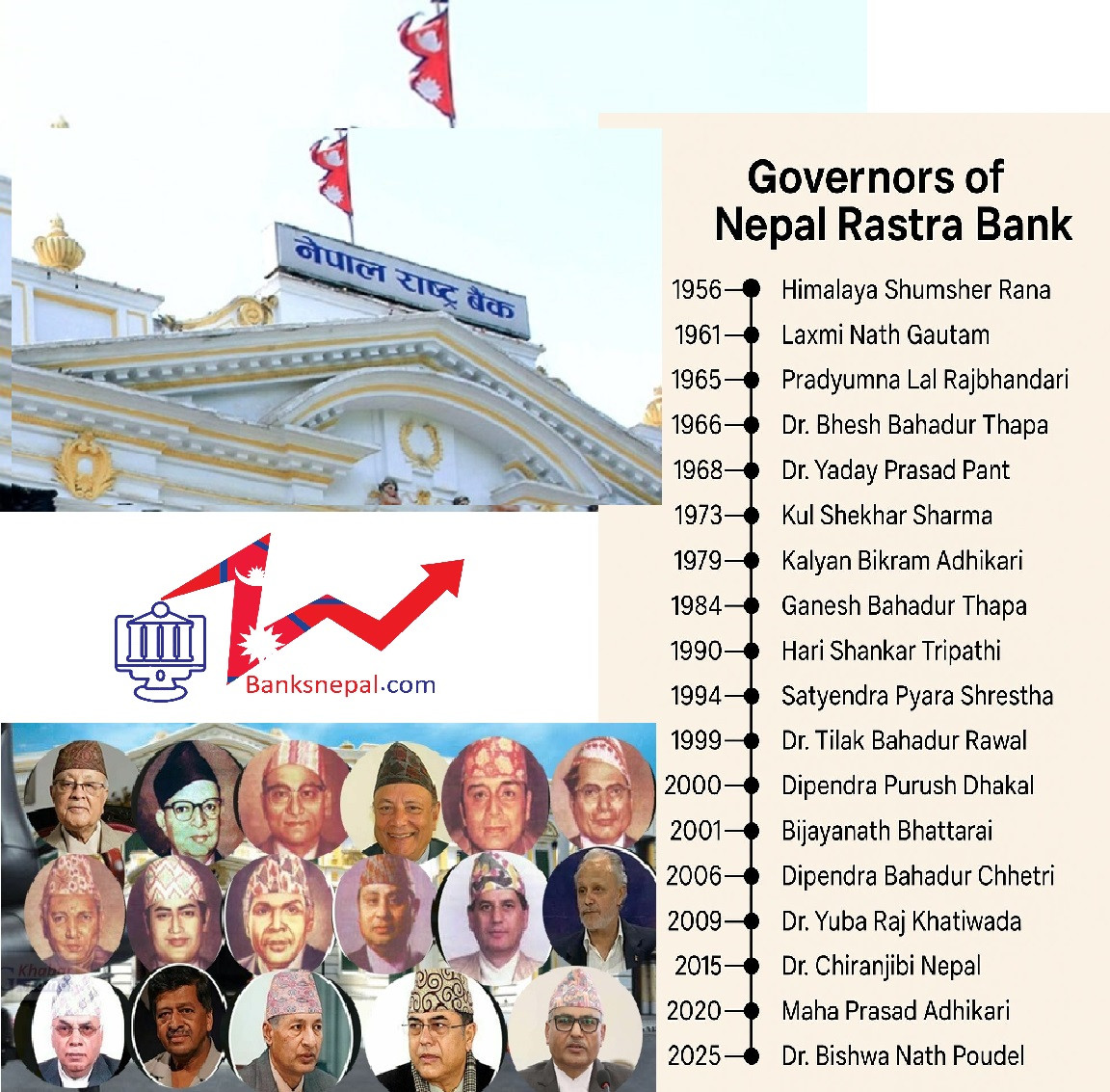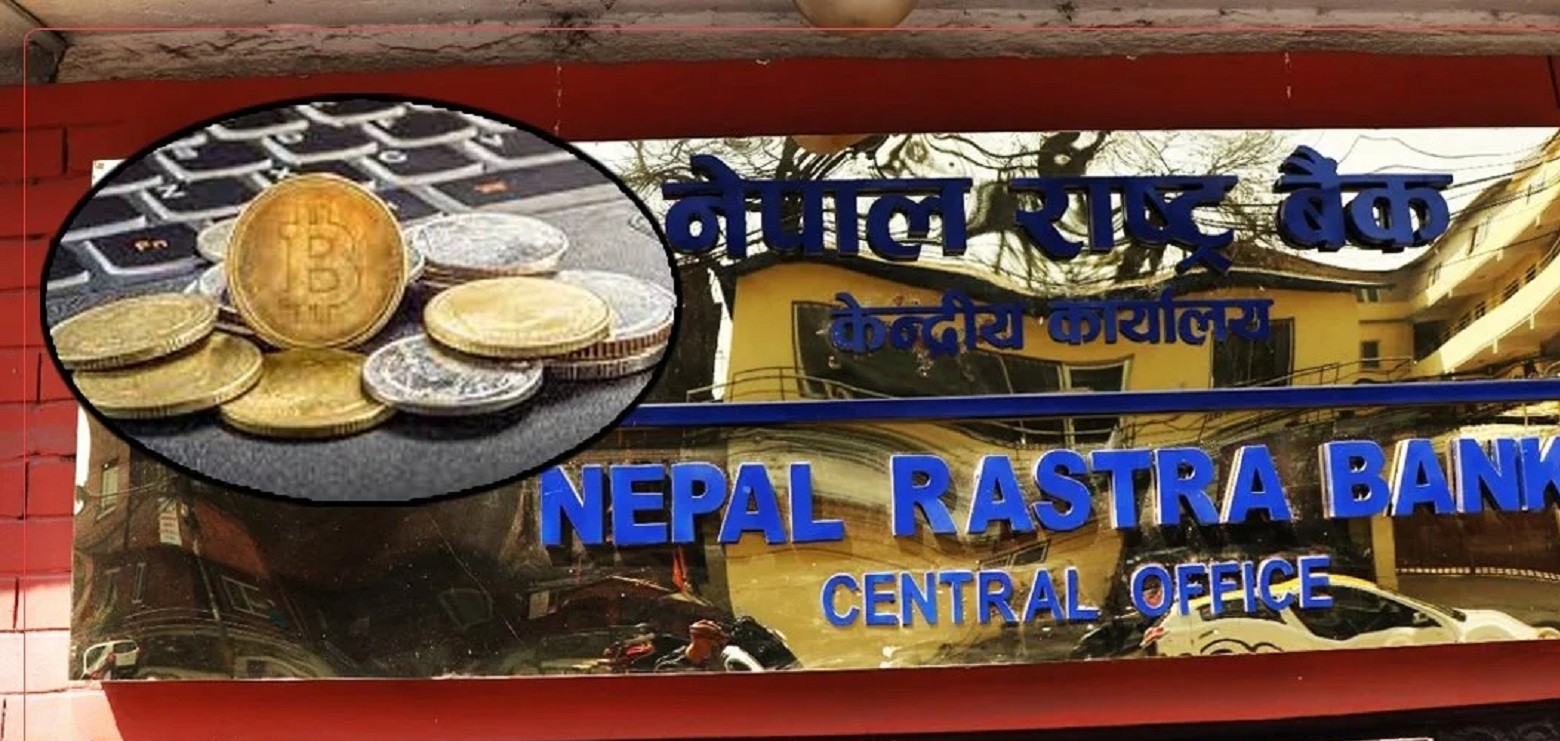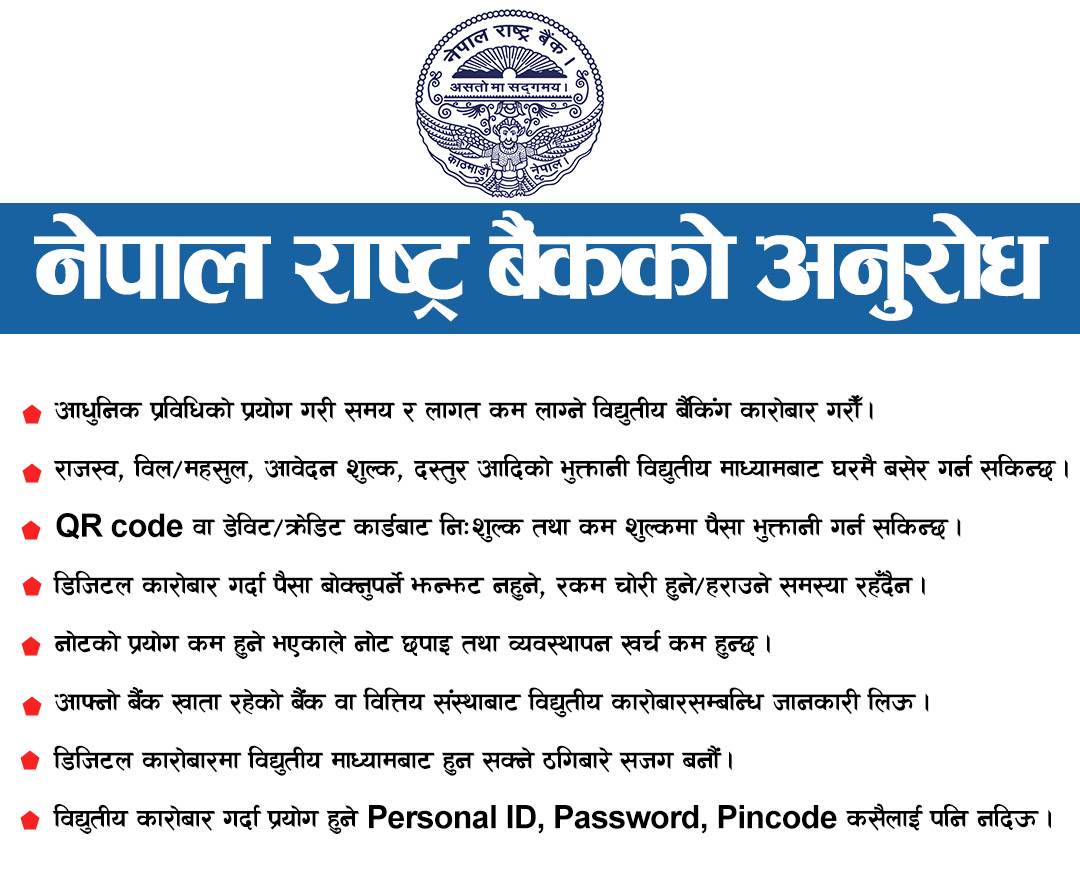Digital Banking technology impact in Nepal : Banking employment crisis to the Nepali banking sector
Nov Wed 2025 02:55:04

Kathmandu. The rapid expansion of digital banking in Nepal, the use of mobile banking, QR payments, digital wallets and artificial intelligence have provided convenience to customers, but have increased uncertainty in banking employment.
International research firm McKinsey & Company has concluded that AI will replace more than 50% of ‘repetitive work’ in the banking sector worldwide by 2027.
This impact is also expected to be directly visible in the context of Nepal.
Customer support — up to 80% replaced by AI
Loan appraisal — automated through digital scoring tools
Reporting and auditing — software-based
Risk management — done by AI-based forecasting systems
This means that by 2027, thousands of jobs in Nepal’s banks could be at risk.
Not just a job crisis, but also an opportunity
However, technology has not only brought challenges, it has also created opportunities.
Cyber Security Specialist: Cyber security has become a high priority with the rise of digital banking.
Data Analyst and AI Engineer: Demand is increasing for big data management in banking services.
Digital Marketing and User Experience Designer: These jobs are essential to attract the new generation.
But there are still some challenges:
Lack of internet access in rural areas
Difficulty for the elderly/elderly who do not understand technology to avail services.
Increasing cyber hacking and fraud
Therefore, with the expansion of technology, the problem will not be solved unless public awareness, cyber security and access to technology are ensured.
Large institutions like JP Morgan, Citibank, and Dutch Bank in the US have laid off thousands of employees as they prioritized AI and digital platforms. For example, in 2023 alone, Citibank cut 12 percent of its staff in its global branch network.
Earlier, hundreds of 'customer care officers' were required to serve customers. Now, AI chatbots and 'virtual assistants' are serving customers 24 hours a day. Similarly, tasks like loan approval, loan risk analysis, and document verification are now more dependent on software than human labor.
Expansion and impact of technology in Nepal
The expansion of digital banking services in Nepal has been unprecedented in the last five years. Electronic payments through mobile banking, wallets and quick response codes (QR) have increased at a high rate. Despite other electronic payment technologies, the number of users of mobile banking, wallets and QR codes has increased, according to data from Nepal Rastra Bank.
In the last fiscal year 081/82 alone, mobile banking transactions increased by 45.34 percent. In the fiscal year 080/81, 3452 billion 780 million rupees were paid through mobile banking. Last fiscal year, 5018 billion 330 million rupees were paid through this. Two years ago, in the fiscal year 079/80, 2185 billion 990 million rupees were paid through this, according to the central bank's data.
In terms of numbers, such transactions have increased by 45.9 percent. In the fiscal year 080/81, 428 million 99 thousand 877 mobile banking transactions were made. In the last fiscal year, such number reached 614 million 133 thousand 910. In the fiscal year 2079/80, there are 283.420 million five hundred and ninety-seven such transactions.
Currently, all banks operating in Nepal have provided mobile banking services. In addition to these, 22 payment service providers are operating wallets. Similarly, nine different payment system operators are also in operation. They have been providing facilities such as developing payment systems and providing QR codes to commercial customers (merchants).
Looking at the data of the last three fiscal years, it is seen that mobile banking, wallets and QR payments are increasing. Most customers now have smart phones. The data has confirmed that the trend of paying through wallets and mobile banking apps is increasing. In addition, QR payments have also increased due to this.
After Nepal Rastra Bank adopted a policy to promote digital transactions, the concept of 'cashless society' is becoming stronger. This has had a direct impact on human resources. The number of employees depositing/withdrawing cash at the counter is decreasing. The number of employees involved in cheque clearing has decreased. Digital branches have been increased instead of branch expansion.
A bank CEO said, “Earlier, at least 15-20 employees were required to operate a branch. But now, thanks to mobile apps and digital payments, the same branch is easily managed by 5-7 people.”






